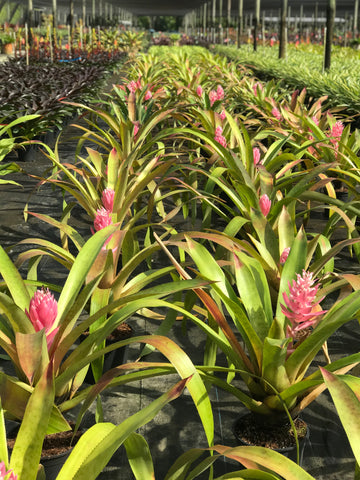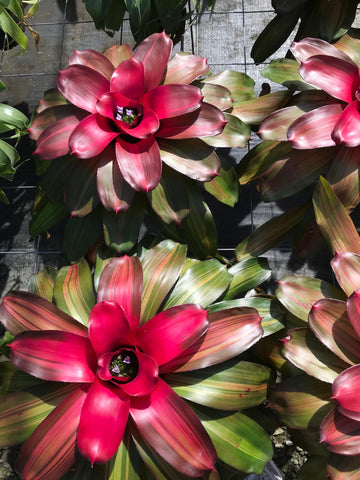Bromeliads are unique, bold plants that are prized for their thick leaves and vibrant inflorescence (a.k.a flower). They’re easy to care for, but do have a life-cycle that’s a bit different from your average houseplant. If you ask us, this just makes them even more special.

There’s a common misconception that once a bromeliad flowers, it dies, and you are left plant-less and sad. While this is somewhat true, there’s always an opportunity to keep the cycle going and start anew.
Bromeliads are often purchased during the flowering stage, because that is when they’re most attractive; however, many don’t realize that this is also the start of the dying stage for the plant, fooled by their vibrancy. This does not mean you should slack with plant care at all. If you do slack, that opportunity for a fresh start goes right out the window.
With patience and the proper TLC, you’ll notice tiny offshoots in the soil beside the plant’s base. These are called pups, and are literally baby bromeliads (let that sink in then go ahead and name your juniors). Some blooms can last up to a whole year, while pups grow big and strong as the mother plant slowly dies.

When pups are about half the size of the mother plant, it’s time to separate and replant them. The mama is probably looking pretty rough at this point. She’s served her purpose and lived a fulfilling life making beautiful children. It’s time to say goodbye and promise her that you will take impeccable care of her spawn.
Repot the pups separately as you would any tropical houseplant. Epiphytic in nature, all bromeliads have a “tank” at their center. This is how they store their water in the wild, while also absorbing droplets through their leaves. Don’t make the mistake of keeping the tank full of water at home, as this can quickly lead to rot. Instead, you should mist the leaves and tank daily with a spray bottle, and water the soil thoroughly when it's nearly dry.
Now that you know owning a bromeliad doesn't end in total devastation, we bet you're itching to collect 'em all.

